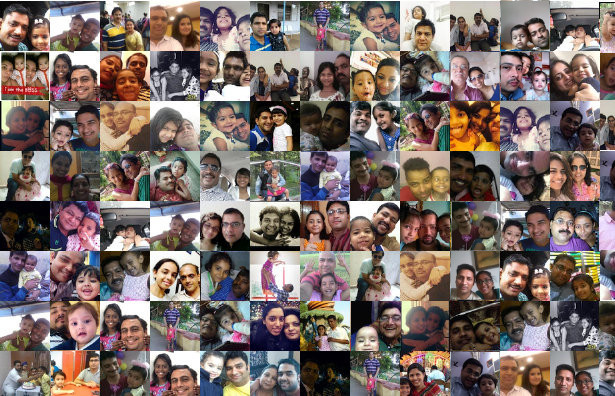IndiaSpend/FactChecker--The Year's Most Popular Stories
At IndiaSpend, we do not like adjectives, we do not like opinion. Emotion is not our thing. Data are. Facts are. Reportage is.
Using data as our core, we focus on topics of public interest, topics that should be in the public domain but, usually, are not.
This year, as always, we have brought our credo to bear on a variety of topics, such as agriculture, health, climate change, education, women's empowerment, employment, electoral politics and strategic affairs. We have dissected official reports, gleaned meaning from data and recorded voices from the ground, often in collaboration with top research institutes and reporters who work and live in villages.
In addition, this year, we have forayed into the world of sensor journalism, with Breathe, India's first independent, streaming network of independent air-quality sensors.
At FactChecker.in, besides scrutinizing official statements and reports, we were a part of two global factcheckathons—for the G20 summit in Antalaya, Turkey, and the COP21 summit in Paris, France.
As the year comes to an end, we look at the top three stories on IndiaSpend and FactChecker.in.
Top 3 stories from IndiaSpend
52% Rainfall Deficit Deepens Maharashtra Record Drought
With 32 suicides reported in one week across Maharashtra's south-central region of Marathwada, a deepening drought—worse than the last one of this intensity 43 years ago, said farmers—gripped all but one region of the state. Marathwada and Western Maharashtra had rainfall about half the normal average, according to government data, and people from drought-hit regions, which includes the North, are migrating to the state's cities, such as Aurangabad, Pune and Mumbai. With crops dead even in some irrigated areas, villages now depend on the state even for drinking water. The government said it will make Maharashtra drought-free by 2019, but past evidence is not promising.
Introducing #Breathe, The IndiaSpend Air Quality Index Network
With Breathe, India's first streaming network of independent air-quality sensors, IndiaSpend hopes to build a multi-city system that can share air-quality data in an open, transparent way, for the benefit of all, including those who run other networks. We do not aim to disprove or counter the data being collated by other networks, including those run by the Government. While our eventual objective is that the data we generate should lead to policy action, there are many other ways these data can help us. For instance, we are in conversation with doctors specialising in respiratory diseases in Mumbai hospitals to see how we can correlate air quality to respiratory disease.
#SelfieWithDaughter: Can India Save 23 Million Girls?
India’s child sex ratio (below six years) is now the worst in 70 years, possibly the worst ever. If it does not improve, India will find itself short of 23 million women in the 20-49 age group by 2040. Urbanisation is worsening the child sex ratio. Bangladesh, Sri Lanka, Myanmar and Nepal do much better than India.
Top 3 stories from FactChecker
Power Ministry: Series Of False Claims, Marginal Improvements
"Highest-ever” addition of power-generation capacity (22,566 MW) in a single year; power generation touching the trillion-unit mark; lowest-ever (3.6%) power deficit; and a 32-million-tonne increase in coal production. These are some of the claims made by the Ministry of Coal and Power in its performance report card. However, we trawled the data and found selective and exaggerated reporting.
Maneka Gandhi Is Right: Funds For Critical Nutrition, Health Schemes Cut 51%
In February 2015, the budget of the women and child welfare ministry was cut by about half. Women and child welfare minister Maneka Gandhi sparked a controversy earlier this year after telling Reuters that her departments were struggling, her observations interpreted as criticism of her own government. Gandhi is right. Factchecker.in found that the budget for women and child development was cut by 51%.
Modi’s 5 Mega Plans: Long Road Ahead
“Our programmes of inclusive development, including financial Inclusion, universal access to basic needs by target year, Make in India, Skill India, Digital India, Industrial Corridors and Smart Cities will boost growth and employment in India.” This was the declaration India’s Prime Minister Narendra Modi made at the G20 multilateral summit in Antalaya, Turkey, where several heads of state gathered to discuss the global economy, climate change and terrorism in the wake of the Paris terrorist attacks. Modi’s statement during the session on “Inclusive Growth: Global Economy, Growth Strategies, Employment and Investment Strategies” spotlighted his government’s main plans. We factchecked his statement and updated the progress of five big government programmes. This FactCheck exercise and report was collaborative effort with members of the Global Fact Checkers Association, timed with the G20 Summit in Antalya, Turkey.
We welcome feedback. Please write to respond@indiaspend.org. We reserve the right to edit responses for language and grammar.
__________________________________________________________________
Liked this story? Indiaspend.org is a non-profit, and we depend on readers like you to drive our public-interest journalism efforts. Donate Rs 500; Rs 1,000, Rs 2,000.



